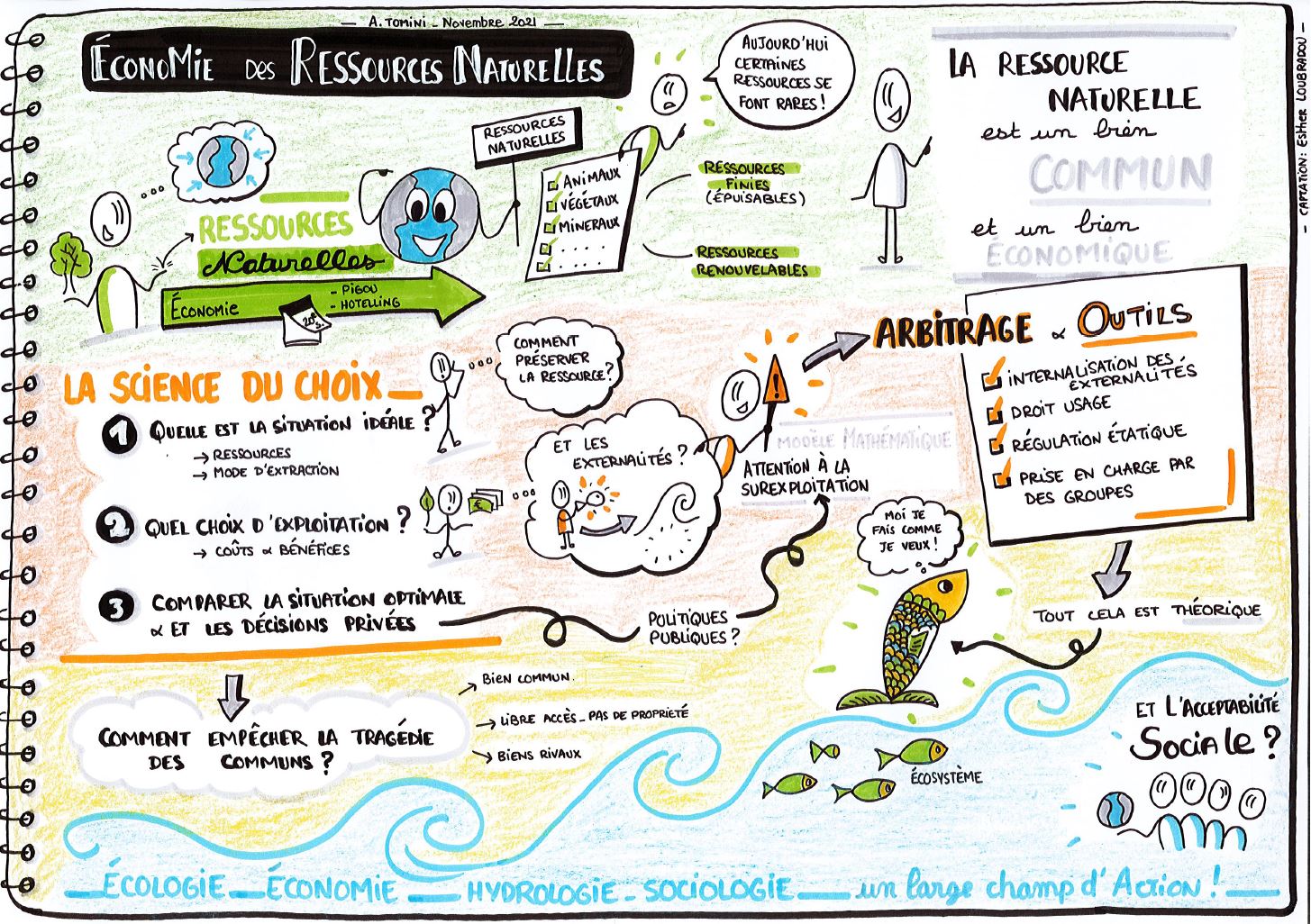Les ressources naturelles peuvent être renouvelables (eau, forêts, poissons...) ou non renouvelables (pétrole, gaz, minerais...) selon s’il existe ou non un processus naturel permettant de la reconstituer. Les économistes s'intéressent à la question des ressources naturelles depuis leur raréfaction. Nous savons que les stocks en ressources diminuent. Cette conférence pose la question de pourquoi ? Qu'est-ce qui explique que nous avons tendance à surexploiter la nature ? Comment l'économie peut-elle nous fournir les outils pour changer les comportements ? À quel rythme exploiter une ressource renouvelable pour ne pas l’épuiser ?
Agnès Tomini est chargée de recherche au CNRS affiliée au laboratoire AMSE. Sa recherche s’articule autour de la gestion des ressources naturelles, plus spécifiquement des ressources renouvelables telles que l’eau souterraine et les ressources halieutiques. Ses travaux, essentiellement théoriques, ont pour but d’analyser les mécanismes sous-jacents aux décisions d’exploitations en tenant compte des interactions naturelles.

Pour aller plus loin
Les conférences Sciences Echos sont organisées en partenariat avec la Bibliothèqye de l'Alcazar et le rectorat de l'Académie d'Aix-Marseille.
Facilitation graphique : Esther Loubradou © Aix-Marseille School of Economics






